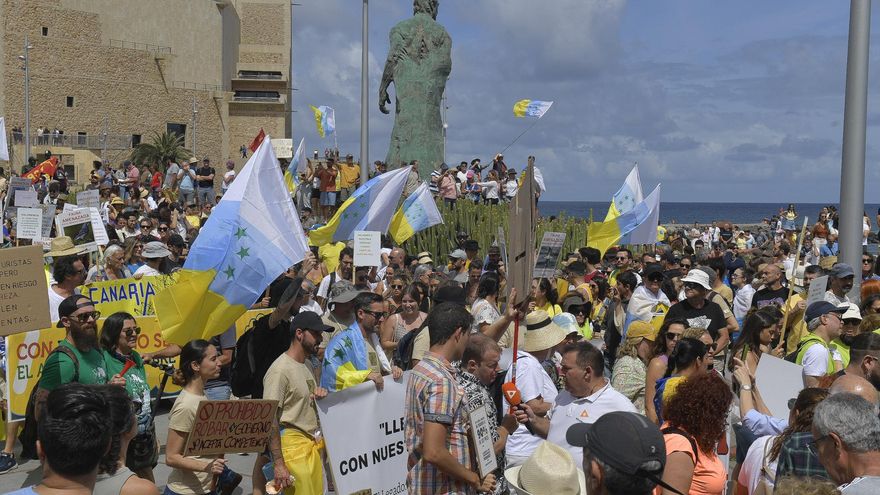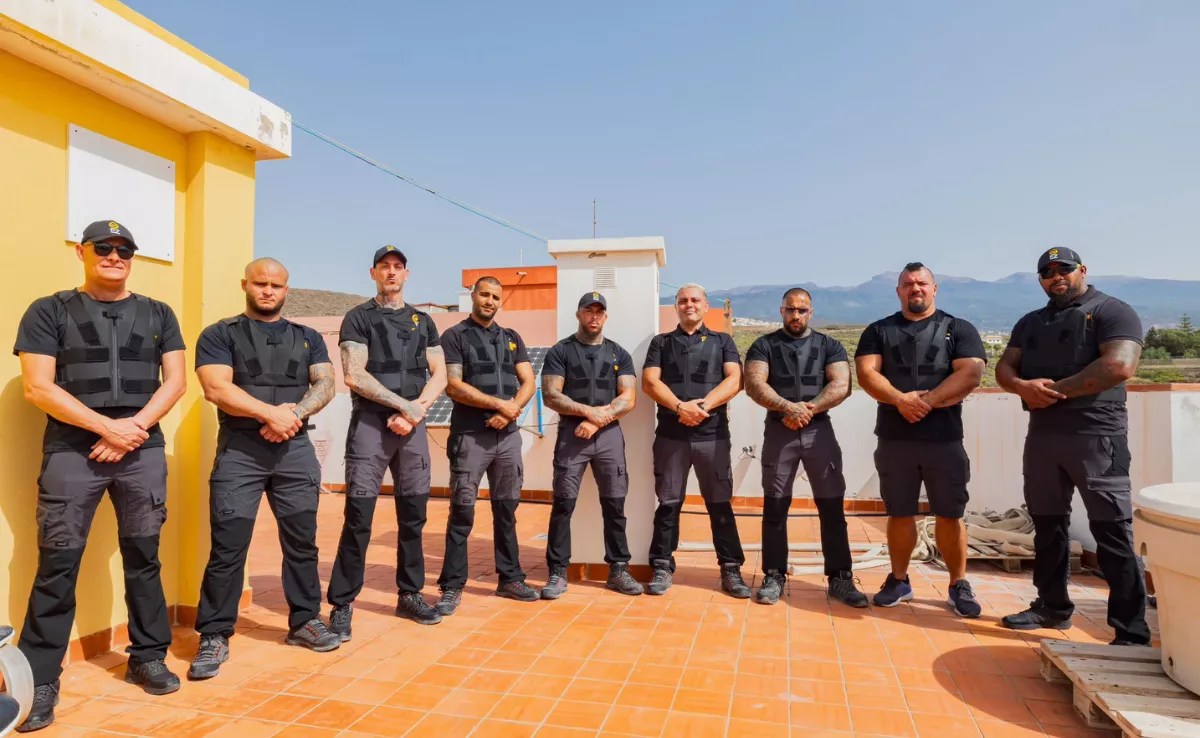
The presidents of the business associations in both Canary provinces, Pedro Ortega and Pedro Alfonso, agree that, following the massive demonstration on Saturday with the slogan “Canary Islands Have a Limit,” it is necessary to “sit down and talk” and “start working” to improve the current tourism model.
The President of the Canary Confederation of Entrepreneurs, Pedro Ortega, stated that “a period of reflection is opening” to analyze the reasons for public discontent and seek solutions to specific issues. Ortega emphasized the need to study how people can live better, find housing, ensure tourists leave the Canary Islands more satisfied, and introduce improvements to the economic model that generate more wealth, employment, and sustainability.
Both he and Pedro Alfonso, CEO of Tenerife, believe that many demands raised during the demonstrations “escape the business world.” Alfonso mentioned issues such as road communication, water scarcity, and tourist limitations as responsibilities of local, regional, and even national governments.
In Gran Canaria, there were calls for halting the Chira-Soria project, which many Gran Canarians support due to the shift towards renewable energies.
Therefore, it is essential to “sit down and talk,” emphasizing a dialogue involving institutions, entrepreneurs, trade unions, and civil society.
CEOE-Tenerife’s President highlighted that, for years, entrepreneurs in the Canary Islands have been implementing measures to enhance and sustainably develop the tourism sector.
Hence, they expect the Canary Government, if it decides to act on the demands of the April 20th demonstration against the current tourism model, to do so through dialogue and logical, feasible proposals that enhance the economic system’s resilience and sustainability.
Entrepreneurs disagree with both the moratorium and tourist tax demands raised by the April 20th promoters. According to Ortega, any measure that increases the destination’s cost could impact the tourism sector, on which 40% of the Canarian population relies.
In their view, citizen discontent mainly stems from housing shortages and high rents, where solutions should focus on promoting affordable housing construction, rather than restricting holiday rentals.
Javier Cabrera, President of the Circle of Entrepreneurs and Professionals of Southern Tenerife (CEST), warns of the international repercussions of these protests, especially in the countries from which tourists visiting the Islands originate.
“It is clear that they erode the tourist brand of the Canary Islands, which has been hard to establish, and drive away investments,” he concludes.
A “Success” for the Groups
The demonstrations across the Canary Islands last Saturday demanding an economic model change were deemed a “resounding success” by Ben Magec, one of the twenty organizations that organized the marches. These ecologists claimed that 150,000 people participated throughout the Archipelago, while the Government Sub-Delegation estimated around 60,000 attendees. Ben Magec members believe that authorities should take “decisive measures” following the protests by creating regulations that set limits on and regulate tourist activities, directing the benefits to the wider society. On the other hand, the Save La Tejita collective stated on the X social network that the demonstrations “are just the beginning.” | C.M.
















